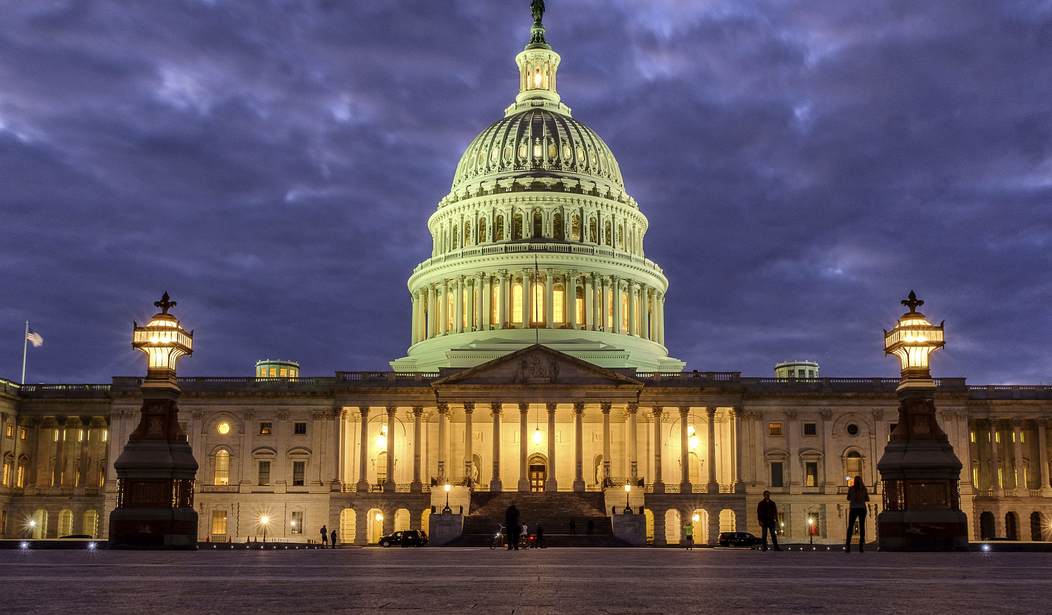n the decade prior to President Trump taking office, the decline of America’s patent system seemed inevitable and irreversible. Years of bad public policy championed in the halls of Congress, disastrous Supreme Court decisions, and misguided administrative rulings emanating from the U.S. Patent and Trademark Office (USPTO) had accelerated the erosion of intellectual property rights and jeopardized America’s position as the global innovation leader.
The United States was the undisputed beacon of innovation until its recent, marked and alarming slip. Now, less than three years into the Trump administration, the tide is turning. With key administration positions being filled with pro-patent officials, the United States is signaling a new day in intellectual property protection for America’s inventors.
Earlier this year, the U.S. Chamber of Commerce’s Global Intellectual Property Center released its annual International IP Index and found that the United States had risen from 12thin patent system strength to a tenuous but encouraging 11-way tie for 2ndjust below Singapore. In Bloomberg’s annual Innovation Index, the United States moved up to 8thfrom 11thin their rankings released in January. These signs are encouraging but we must continue the progress to reclaim our status as the global hub for innovation.
The improved climate can be tied to the arrival of officials in key positions who support strong IP and patent protections. This is especially true of President Trump’s appointee to head the Patent and Trademark Office, Andre Iancu. Iancu has taken many important steps to implement changes at the PTO that strengthen the rights of patent holders and reverse the anti-patent bias.
Recommended
Meanwhile, on Capitol Hill, a bipartisan group of Senators and Congressmen is carrying the torch for innovators. Recently my fellow Ohioan Rep. Steve Stivers (R-OH) and Rep. Bill Foster (D-IL), as well as Sen. Tom Cotton (R-AR) and Sen. Chris Coons (D-DE) re-introduced the STRONGER Patents Act of 2019 in their respective chambers. It’s heartening to see members of Congress take the lead and advance serious permanent strengthening of the patent system. Several key conservative organizations have already cheered the introduction of this legislation.
Perhaps the most encouraging part of this legislation is that it reins in the administrative tribunal known as the Patent Trial and Appeal Board (PTAB). The PTAB was created by the American Invents Act, signed into law by President Obama. The tribunal, run by the PTO, was intended to bring efficiency to patent challenges Instead it has become known as the “patent death squad” which has tormented patent owners for years, showing utter disdain (or inexplicable ignorance at a minimum) for the innovative process and costing America’s inventors time and untold sums defending their intellectual property from hostile and repeated challenges by infringers. By some estimates, the PTAB invalidates over 75% of patents issued by the USPTO.
The tribunal’s review doesn’t offer patent owners the same legal procedural protections and standards of proof as a court of law, and the tribunal can invalidate any patent challenged at will. Many inventors have found themselves successfully defending their patent in federal court, only to have it later invalidated at the PTAB – where the standards are much different. Fortunately, Director Iancu has started to reform the process and make sure that the claim standards are the same as the ones used by federal courts.
While those changes are critical, it is not enough. Rule changes by the PTO director can be easily reversed, so those changes must be permanent. Fortunately, the STRONGER Patents Act would do just that, and provide much-needed guidance, clarity, and fairness to the proceedings.
Another key component of this legislation is that it reestablishes that“patents are property rights, enforceable with injunctions.” If a patent owner cannot get an injunction against an infringer, they essentially have no property rights protection. Strengthening those protections puts patent thieves on notice that they can’t wait out inventors with long, protracted litigation while continuing to sell products using someone else’s ideas. This change will encourage negotiations licensing agreements.
After years of decline, I’m encouraged by the recent action of our policymakers to stem the tide of erosion in patent rights. For too long, while our leaders dismantled our patent system, countries in Europe and Asia (even China) have worked aggressively to buttress their patent systems modeled after the one we enshrined in our constitution at the founding. Now, President Trump and a bipartisan cadre of senators and congressmen are taking action to make America once again a nation that protects patent rights, encourages innovation, and leads the world in technological advancement. And this should encourage us all.
























Join the conversation as a VIP Member